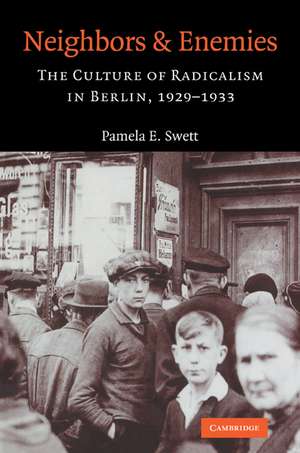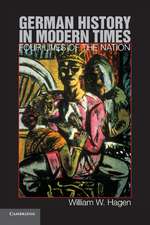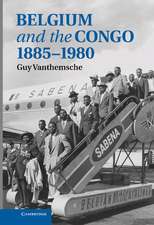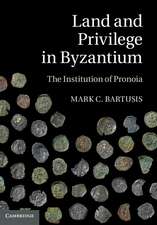Neighbors and Enemies: The Culture of Radicalism in Berlin, 1929–1933
Autor Pamela E. Swetten Limba Engleză Paperback – 19 iul 2007
| Toate formatele și edițiile | Preț | Express |
|---|---|---|
| Paperback (1) | 396.59 lei 6-8 săpt. | |
| Cambridge University Press – 19 iul 2007 | 396.59 lei 6-8 săpt. | |
| Hardback (1) | 754.69 lei 6-8 săpt. | |
| Cambridge University Press – 26 sep 2004 | 754.69 lei 6-8 săpt. |
Preț: 396.59 lei
Nou
Puncte Express: 595
Preț estimativ în valută:
75.88€ • 79.24$ • 62.66£
75.88€ • 79.24$ • 62.66£
Carte tipărită la comandă
Livrare economică 15-29 aprilie
Preluare comenzi: 021 569.72.76
Specificații
ISBN-13: 9780521039970
ISBN-10: 0521039975
Pagini: 360
Ilustrații: 19 b/w illus. 1 table
Dimensiuni: 155 x 234 x 17 mm
Greutate: 0.5 kg
Editura: Cambridge University Press
Colecția Cambridge University Press
Locul publicării:New York, United States
ISBN-10: 0521039975
Pagini: 360
Ilustrații: 19 b/w illus. 1 table
Dimensiuni: 155 x 234 x 17 mm
Greutate: 0.5 kg
Editura: Cambridge University Press
Colecția Cambridge University Press
Locul publicării:New York, United States
Cuprins
List of figures and plates; List of abbreviations; Note on sources; Acknowledgements; Introduction; 1. Neighborhoods and metropolis; 2. Rebellion at home and in the community; 3. Republicanism or radicalism: appeals to Berlin's workers; 4. Conflict and cooperation: political independence in Berlin's neighborhoods; 5. The logic of violence; Conclusion; Bibliography; Index.
Recenzii
'Pamela Swett's fine new study of neighbourhood radicalism in late Weimar Berlin not only fleshes out our current knowledge but recasts it. Swett demonstrates how to write a history that fully incorporates gender and generation. … the stories of neighbourhood battles and denunciations are riveting.' The German History Society
Descriere
An account of the collapse of the Weimar Republic from the perspective of individual workers.


















